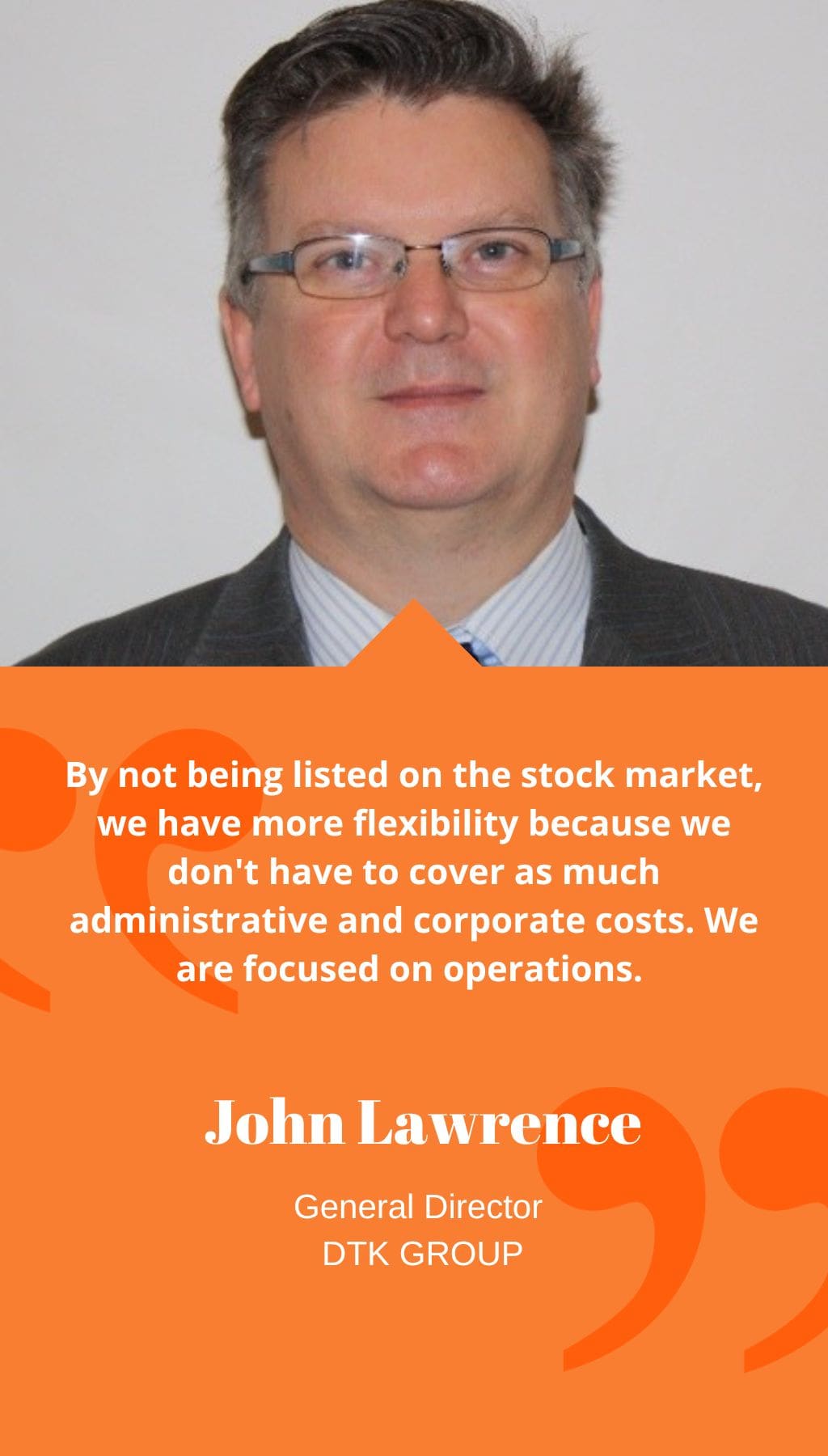
- Mexico | 23 April 2016

What is the history of DTK Group?
The key people of the Group have worked their entire lives in Latin America, mainly in Mexico. Personally, I have been in the country for 37 years. We have a long history of working with Pemex, as well as experience in Colombia with Ecopetrol and other clients. That was the basis that formed the company. Many of us worked at ResLab Mexico, a Norwegian company that was acquired by Weatherford in 2007. When the non-compete periods expired, we began operating as the DTK Group. Our main lines of business are laboratories for rock and fluid analysis and services in wells, including hydrocarbon logging, drilling monitoring, and well geology services. Everything we do is related to geology. Our clients tend to be the exploration departments of oil companies; in Mexico, 95% of our work is under contracts with Pemex, both in laboratory services and in services in the wells. Currently, the group is focusing its growth on other countries. In Mexico, we have the largest presence, with sales of around $2.4 million per month; 70% of that amount comes from the laboratories. Now, we must be ready to face the changes in the way of working that the energy reform will entail.
What is DTK Group’s presence in terms of facilities and personnel?
Our main laboratory in Mexico is in Villahermosa, where 45 people work. In field operations, we have 130 people, and in the administrative office, another 15 people. We have a smaller laboratory in Poza Rica and provide well services in different regions, not just in the southern region. In the rest of the world, we have operations in Houston, the Middle East, based in Abu Dhabi, and we have well services in Nigeria, Colombia, and Egypt. On the other hand, we have a company that manufactures laboratory instrumentation in Norway. In total, we are around 300 people in the Group.
Do you have your own mudlogging software and tools?
It’s a combination. We have an alliance with a company from the United States, Diversified Well Logging. In our operations in Mexico, all the cabins that work in the wells are from that company. In Colombia, Nigeria, and Egypt, the cabins are owned by DTK. We have independent software that we place in all of these units.
What impact can the energy reform have in Mexico?
Mexico is going to open its market to foreign oil companies, which will be able to develop fields in partnership with Pemex. Potentially, the market will grow a lot, and there will be many opportunities for us. We have to be ready to adapt to the different ways of working of other companies. For now, we are still waiting to see. At the last Mexican Petroleum Congress, the absence of those foreign companies was notable. From an internal perspective, the reform has slowed down Pemex’s activity because there is uncertainty about which fields the company will keep and which fields will be awarded to other companies.
What advantages does being an independent company bring you?
By not being listed on the stock market, we have more flexibility because we don’t have to cover as much administrative and corporate costs. We are focused on operations. We can respond quickly to a situation or to the client’s needs. We work in technical niches, which sometimes large companies also want to cover, so there is competition. The difference is that in Mexico, we created a laboratory dedicated to working for the Mexican market. In contrast, the competition sees the Mexican market as just another one to get work for their large laboratory, which is in Houston.














